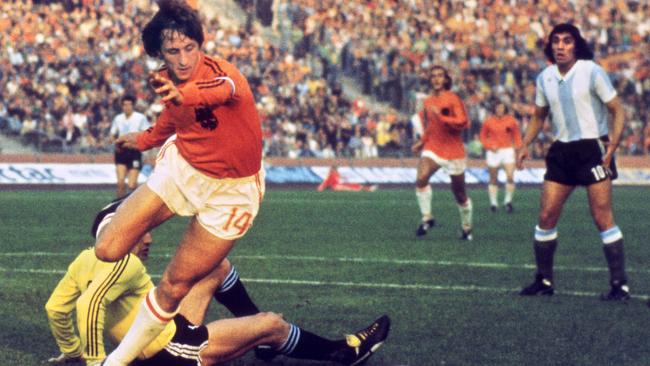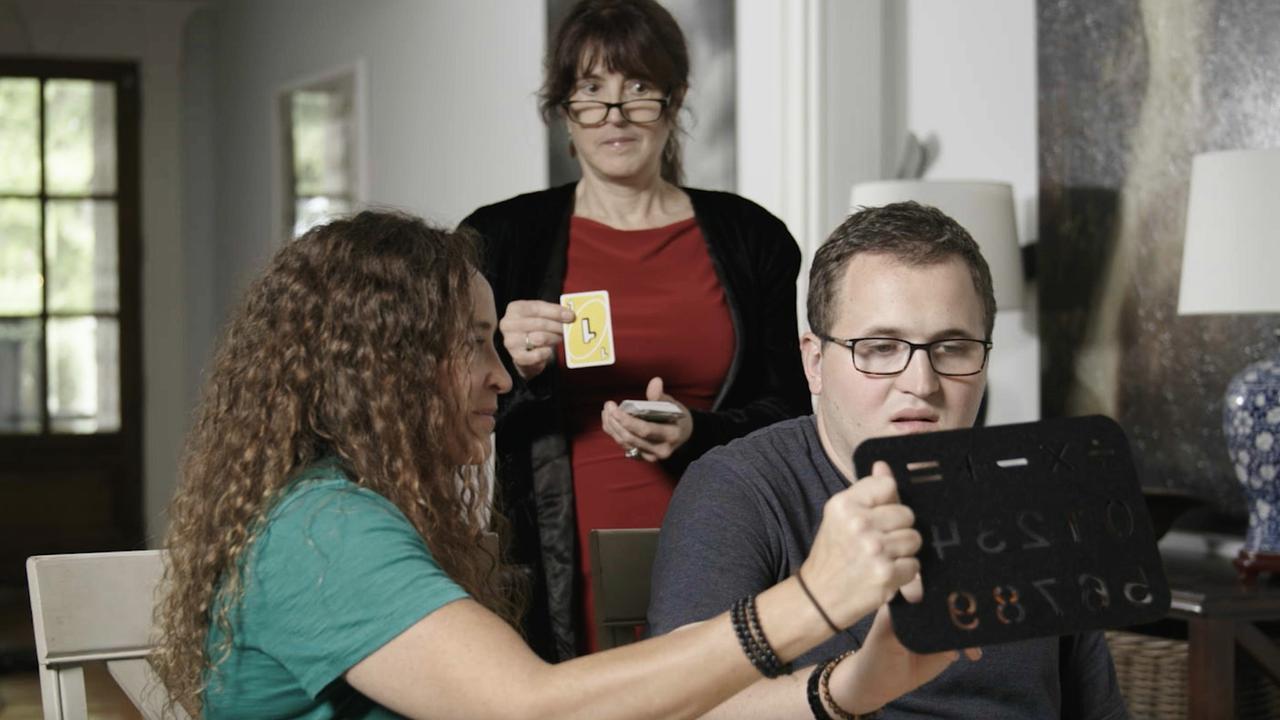Johan Cruyff memoir upholds ‘the idea of football’
Celebrated victories, trophies, miracle goals and incandescent passages of play are of little interest to Johan Cruyff.

Nureyev famously held that Johan Cruyff was wasted on football, such was the Dutchman’s poise on the field, the ease and purpose of his movement. The pundits called him Pythagoras in Boots, a nod to his vision and spatial awareness. When he died last March, YouTube was flooded with slow-mo balletic montages, many of them scored to romantic symphonies.
The classic image, however, is a still. It shows a rangy man with scruffy hair in an orange shirt, imperious with or without the ball, always pointing: you go here, you there, now do this, then that. Cruyff knew better than anyone what needed to happen next, and where and when, and how things might unfold if everyone played his part. He got the game.
Was he the greatest? Probably not. A player needs World Cups to stake that claim, which is why Lionel Messi and Cristiano Ronaldo in our own time must line up behind the likes of Pele, who won three with Brazil, and Diego Maradona, who dragged a middling Argentine side to the summit.
Cruyff failed in 1974 when Holland dispatched Brazil, Argentina and Uruguay with great nonchalance, then scored after 90 seconds in the final against West Germany, only to snatch defeat from the jaws of victory. Sober writers have recast that match as a forgotten theatre of World War II, and it’s true there were Dutchmen on the Munich pitch who had lost family in the hostilities.
In this posthumously published autobiography, Cruyff says only that the Dutch played with too much pride and that pride comes before a fall. “That said,” he concludes, “I got over it quickly enough.”
Celebrated victories, prized trophies, miracle goals and incandescent passages of play are of little interest to him. The 1974 World Cup final merits not quite two pages while the “Cruyff turn”, the bewildering sleight of foot executed against a hapless Swedish defender at the same tournament, is done in a paragraph.
What matters to Cruyff is “the idea of football”, by which he means good grass, clean boots and tight nets. And the rest of it: peerless technique, revolutionary tactics and a philosophy of the game that values brain over brawn, and beauty above all else, even victory if needs be. Winning ugly was anathema to the Dutch, in Cruyff’s day at least.
The nation that taught the modern world how to play had first to teach itself, and much of the grunt work was done on the cobbled streets of Amsterdam-East where Cruyff and a gaggle of urchins honed their craft in the late 1950s. In the following decade they came together at Ajax FC and by the early 70s no team could touch them. In 1974 they were internationals and champions, or very nearly, and the phrase on every fan’s lips was Total Football.
To that extent, it was child’s play. Cruyff always maintained that the best football was the simplest, but that playing simple football was the hardest thing in the world. At Ajax and later with Holland, every player was required to be expert in every position, meaning the goalkeeper launched the attacks while a striker who lost the ball became the first line of defence.
Some called the national team Clockwork Orange, which captured their technical perfection but sold their artistry short. Today the class of 74 are old masters and Cruyff is the most famous Dutchman since Vincent van Gogh.
No, he was not the greatest, but it’s hard to name a more influential footballer. Australia enjoyed a little of his legacy in 2006 when Guus Hiddink coached the Socceroos to the World Cup finals for the first time in 32 years. Cruyff’s style lives on in Barcelona, where he excelled as a player and won the Champions League as manager, and in Munich, where he enchanted the masses all those years ago.
Cruyff was notorious for his delightfully mangled argot, whatever language he was speaking. The Dutch have a word for it — Cruijffiaans — and the bestseller among the 50-something books about him contains nothing but quotes. His brilliant verbal mistakes appear to have been ironed out in the English translation of his autobiography, which is a pity and, in a sense, a betrayal of who he really was.
He had a love-hate thing with club and country. Catalans deify him, thanks to his exploits at Barcelona. But his Ajax teammates voted him out of the captaincy after winning three Champions League crowns in a row, and he was never invited to coach the national team. In these pages he is argumentative, immodest, blunt, contradictory, counter-intuitive and absolutely right about everything. Dutch, in a word.
My Turn: The Autobiography
By Johan Cruyff
Pan Macmillan, 302pp, $32.99
David Brearley is a journalist and writer and not a bad goal shooter.


